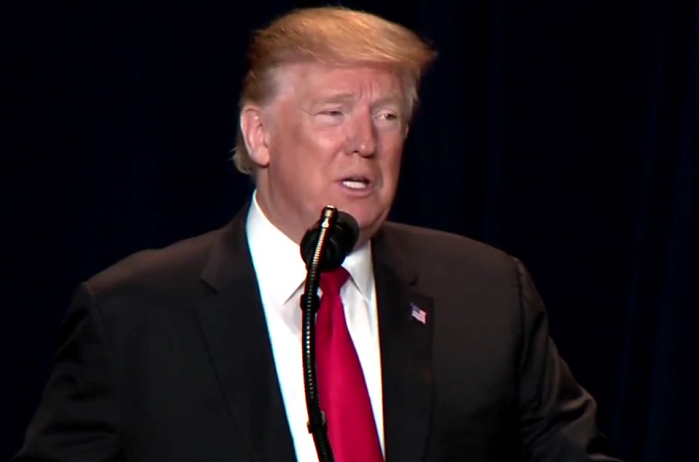Shortly after he won his re-election victory, President Trump had a conversation with Lt. Governor Dan Patrick of Texas, in which the idea took shape of forming a religious liberty commission that would be tasked with providing recommendations for the President as to how to strengthen religious freedom even more in his second term.
Yesterday, a formal step forward was taken by this commission, which held a hearing at the Museum of the Bible in Washington, DC.
This is of interest to every pro-life American, since the advancement of religious freedom strengthens the pro-life movement.
At the invitation of the White House, I was present, along with many other religious and political leaders, for the hearing. The Religious Liberty Commission exists under the Department of Justice, because as we know, many Americans have been the target of unjust prosecution because of their pro-life convictions and peaceful actions.
In fact, remarks yesterday by Attorney General Pam Bondi and other Commission members did point out the persecution to which peaceful pro-life activists have been subjected.
SUPPORT LIFENEWS! To help us fight the abortion agenda, please help LifeNews.com with a donation!
Among the Commission members were Dr. Phil, Dr. Ben Carson, and Catholic Bishop Rober Barron, with many others.
The hearing consisted of statements from various witnesses who are experts in Constitutional law, history and religious freedom, followed by questions from members of the Commission. Among those who testified, for example, was Professor Gerard Bradley, whom we have known at Priests for Life since he presented at a conference we organized in 2003 to teach pastors how much they can do to help elect pro-life candidates. (Professor Bradley’s daughter, Jenny Bradley Lichter, is the new President of the March for Life.)
Some of the key takeaways from the presentations include:
- Religious freedom is rooted in the duties we as creatures have towards God our Creator. The duty to worship him gives rise to the right to do so freely and without government hindrance.
- The Founders considered good religion and good government to go hand in hand. They wanted neither religion without freedom (i.e. a state religion that would dictate belief by law) nor freedom without religion (i.e. the “naked public square,” a secular America devoid of public prayer or religious symbols.)
- The Supreme Court has strengthened religious freedom in recent years, jettisoning the “Lemon Test,” for instance, which was used by Courts to enforce a false separation of Church and State.
- When it comes to religion, the First Amendment goes in one direction, that is, protecting religion from the state. The notion of a “wall of separation” gives the false idea that it goes in two directions, that is, that the state also has to be protected from religion. That is not America.
- To publicly acknowledge the truth that life is sacred and has to be protected is not the imposition or establishment of religion. It is, rather, basic moral truth that forms the foundation of civilized societies.
Some practical recommendations that began to arise from this include:
- The Constitution protects our free exercise of religion. It is up to the people, therefore, to freely exercise their Faith boldly, proudly, and without fear. Government agencies need to continue to assure faith-based groups that they are not required to hide their faith or be quiet about it when they carry out their mission and public service, even when that is done in tandem with government grants or contracts.
- We must continue to counteract the “mystery clause” in the abortion decision of Planned Parenthood v. Casey, namely, that we all can freely create our own truth or meaning about the universe and the value of human life. Too many people still operate on this false idea. Witnessing to the truth of our faith will help others ground themselves in that truth.
- We should encourage Courts and Judges to have the courage to decide religious freedom cases clearly and definitively. Courts need to continue clarifying for all Americans that yes, we need religion in the public square, we are free to pray and witness to our faith no matter who we are or where we are, we are free to speak and act in favor of the unborn, and that all of this is completely Constitutional.
The Religious Liberty Commission will continue to hold hearings throughout this year, almost every month, and wants to hear from everyday Americans about their experiences and hopes for the growth of religious freedom in America. We at Priests for Life will certainly be sharing with Commission members the experiences we hear from grassroots pro-life Americans who want to be free to proclaim and defend the sanctity of the lives of the unborn. And we are confident that this great cause of life and freedom will only grow stronger!
LifeNews.com Note: Frank Pavone is the national director for Priests for Life.
The post President Trump’s Religious Liberty Commission Condemns Lawfare Against Pro-Life Americans appeared first on LifeNews.com.

